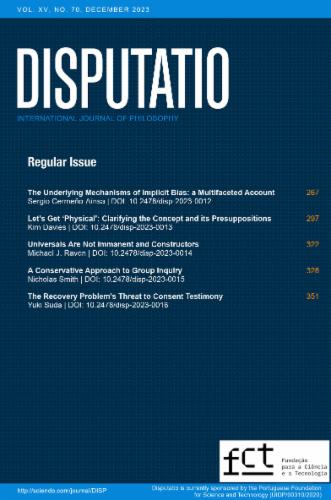Online veröffentlicht: 23. Juli 2025
Seitenbereich: 351 - 370
DOI: https://doi.org/10.2478/disp-2023-0016
Schlüsselwörter
© 2023 Yuki Suda., published by Sciendo
This work is licensed under the Creative Commons Attribution-NonCommercial-NoDerivatives 3.0 License.
Peet [2016] clarified that when we communicate testimony, this is not simply a matter of the speaker claiming some content and the hearer receiving it. He pointed out that some situations create epistemic difficulties with recovering the correct content of the speaker’s utterance. In such situations, testimonial knowledge cannot be attained. This is called the
